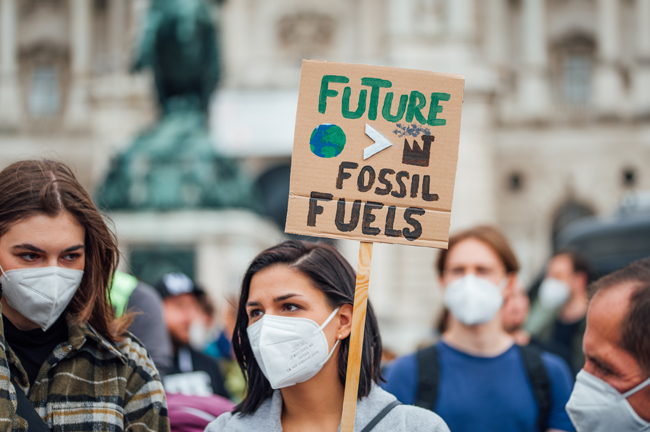In August 2021, the Intergovernmental Panel on Climate Change (IPCC) – the UN body for climate science – adopted the first report of the IPCC 6th Assessment Cycle. Reports two and three will be issued in 2022 (1). The three reports have an executive summary which is agreed word for word by 195 governments. According to reporting from Earth Negotiations Bulletin (2) during the fourth and final approval session of report one, governments were still commenting on many sentences scientists had proposed. There were just a handful of countries that repeatedly questioned the scientists' conclusions, but as a result the final text of the summary of report one should be seen as the lowest level of agreement between 195 member countries of the IPCC. Despite this, the report issued a very strong warning about climate change already present and becoming increasingly sever as we head towards 2030, 2050, 2100 and 2300. The report also emphasises the great co-benefits of reducing GHGs for human health and the environment by reducing other air pollutants from burning fossil fuels at the same time. It confirms and reinforces many of the conclusions of the IPCC since its first assessment reports in 1990, but also builds heavily on the three IPCC special reports issued in 2018 and 2019. Climate Analytics has summarised the main conclusions of these IPCC reports on behalf of AirClim and CAN in four new science policy briefings (3). A good overview of the climate science issues discussed by the IPCC can also be found on the RealClimate web portal (4).
It is very important that the forthcoming second part of the sixth assessment report very clearly identifies the potential tipping points of regional and global ecosystems that could be destroyed by global heating. The fantastic ecosystems of the Andean cloud forests described in this issue of Acid News is an alarming example.
Since the Paris Agreement it has become increasingly clear that scientists and governments regard the 1.5 target as vitally important if humankind is to achieve to avoid dangerous climate change. The IPCC has made it very clear that GHG emissions must be halved by 2030 and reach net-zero by 2050. The remaining carbon budget is again presented in the new IPCC report. Climate Analytics and Constrain have published a very good analysis of the carbon budget discussions (5), while Climate Action Tracker reports on the level of GHG reductions that have been achieved so far and the outstanding emission gap (6).
At the UN COP 26 climate conference in November 2021 the main task of governments is to decide on the pathway the world must take towards reducing emissions from now on. Every five years between 2020 and 2050 there should be clear evaluations by the IPCC concerning the newest science. The UNFCCC should analyse the remaining emission data every year and strictly ensure that the world is really on track to reach the 1.5 target. The wealthy industrialised countries must make stronger GHG reduction commitments much earlier than 2050 and increase their financial aid to countries in the global south to at least USD 200 billion annually. Governments at COP 26 should also refuse to agree new rules for the Paris Agreement that create large loopholes in reporting real reductions of emissions. CAN International has summarised the main concrete demands in an annual policy document (7). On 14 October 2021, CAN Europe and AirClim will publish a study by Climate Analytics showing how GHG reductions of at least 65% can be achieved in the EU by 2030 and net-zero by 2040 (8). These reduction targets should be agreed by the EU as its contribution to halving global GHG emissions by 2030!
Reinhold Pape
(1) https://www.ipcc.ch/assessment-report/ar6/
(2) https://enb.iisd.org/climate/IPCC/IPCC-54-WGI-14/summary
(3) https://climatenetwork.org/resource/1-5c-to-survive-evidence-from-the-ip...
https://climatenetwork.org/resource/overview-briefing-on-the-ipcc-specia...
https://climatenetwork.org/resource/overview-briefing-on-the-ipcc-specia...
https://climatenetwork.org/resource/overview-briefing-on-the-ipcc-specia...
(4) https://www.realclimate.org/
(5) https://climateanalytics.org/media/carbon_budgets_1o5c_updated18092018.pdf
https://constrain-eu.org/wp-content/uploads/2020/02/CONSTRAIN-Zero-In-On...
https://unfccc.int/sites/default/files/resource/RD13%20Poster%20Day%201%...
(6) https://climateactiontracker.org/




























